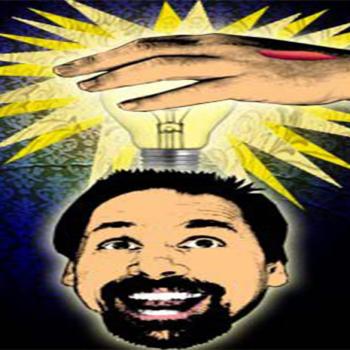So many people think that because of what I do, I must be the one they want to talk to. Well, I'm the one who has the media at my disposal because of baseball. So I want to encourage her, and to tell people and make sure they know that my voice is her voice.
How much did you donate last season?
I don't know, I think I did 56 strikeouts last season? Anyway, it was close to $6000, and we did some with the hospital and stuff, and we're going to do more for them this year, obviously.
Are you going to do the same thing, donating a certain amount of money per strike out?
Yeah, I'll probably up that a little bit per strikeout, but there are a lot of other things we want to do with Free2Play -- like buying sports equipment for the kids after we rescue them, and kind of get them to start dreaming again. We try to do some of those things so that those who want to play sports, can play sports. I want to afford that opportunity to them. Some of these kids that we rescue, they have awesome talents, and they have been squandered by the people who are slaving them out, and they don't have the ability to use their talents. So we want to stir that dream up in them again. I'd love to build a facility that would help do that. And I want to build wells. They always need wells. So I want to work on that aspect as well this year.
Gee, what is that like? That must be heartbreaking to meet kids who don't dream.
You hear some of the stories. That they miss the opportunity to dream. Man, when I was a kid, I dreamed of being a pro athlete, and that's what I did, you know. But these kids are in the environment where right at the git-go they get sold off by their parents, or maybe kidnapped and sold, and they don't have any control over the situation. So to me, it's just a devastating act. I mean, I know they say it's inhumane, but it's worse than that. It's hard to believe that people who have a heartbeat, and have blood pumping through their veins can actually take human beings and sell them, you know, like a product.
I think it's hard to get people to understand because we think it couldn't happen today.
Yeah, I mean, there's more slavery now than when it was legalized. One of my favorite movies is The Usual Suspects, when he's talking about how the greatest thing that Satan ever did was convince people he doesn't exist. I think that's similar to the attitude that some of these people have, you know, to convince people that slavery never happens. It's so weird to me. You talk to people, and they say, slavery's still out there? Slavery's a billion dollar-a-year industry! Eighteen thousand slaves are traded in the U.S. every year!
I've watched Dave do several presentations. You should see people's faces, man, the terror that comes over their faces. The Not For Sale Campaign is so successful because once awareness is raised, it's actually inhumane for you not to participate in some way, shape, or form. You're not going to hear about slavery from someone and then walk up to them and say, "Good luck with that." It's impossible. It's impossible! I told Dave, this is an unbelievable opportunity to get your voice out, especially in this generation.
I've studied this generation a lot. It's a relational generation, this new generation of young people. They're really, really relational. When you show them something and create passion in them for it, they will actually do stuff. You start talking to these young people about their generation getting killed off, and they will want to do something. You start telling them, "People your age are getting sold. People will pay a price for you, and you're going to be doing what they bought you for," and I've seen these kids. They get angry. And that's a positive passion. That's zeal. To me, it's not a form of anger like a destructive anger. I think it's a zealous anger, like, "You know what? We can't allow this to happen."
That's the voice, that's the movement that's going to cause this thing to change. Whether it be global poverty, lack of clean drinking water, whether it be slavery, anything, you start telling this generation that this is what's taking place outside of the United States of America, and get them to have awareness of that, they'll go over there, they'll start raising money, and they'll work. The fact is that they'll want to work to become great at what they do, and become so successful that they'll be able to help their neighbor. And then that love for neighbor will actually start to ooze out of them.





